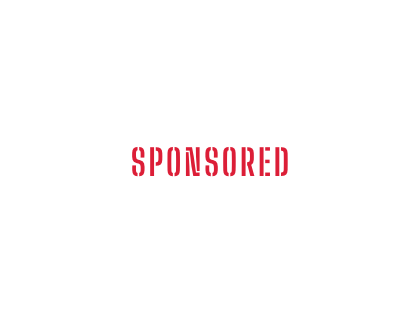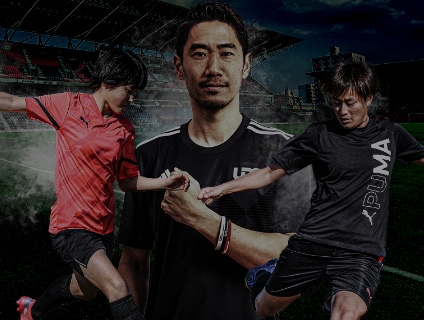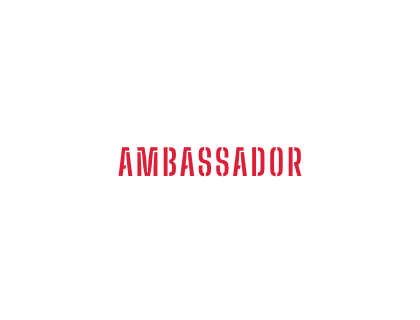
Ryuya Nishio's

Shock received by a boy from a town club. Cerezo Osaka DF Ryuya Nishio, Teachings from his academy days that still haunt him even after he became a professional.
When I was in elementary school, I played football and baseball.
Cerezo's practice was too different in level
The boy, who was "big enough to be one head off" compared to his generation, chose football over baseball.His self-confidence, which was relatively high, is tragically shattered when he participates in a professional club practice. The days of Cerezo Academy began with "Shock". Currently 21 years old, Ryuya Nishio is the main axis of the Paris Olympics generation. He made his debut for the top team in his teens and will lead the last line of the growing cherry blossoms this season, which is his second season.
"Cerezo Osaka, the Power of the Academy". The second installment will focus on Ryuya Nishio. The experience of the academy, the coach, and the relationship with senior Seko Ayumu. And he talk about his future vision.
Ryuya Nishio
 Cerezo Osaka
Cerezo Osaka
Born May 16, 2001. Born in Yao City, Osaka Prefecture. Position is DF. 180 cm tall. Raised at Cerezo Academy since U-15, he made his J-League debut with Cerezo Osaka U-23 in June 2018 at the age of 17. He was promoted to the top team in 2020 and made his J1 debut in the opening game of the league in 2021. A young talent from the academy who has been selected as a member of the age group from U-15 and participated in the Japan national team candidate training camp in January this year.

- Please tell us why you chose Cerezo Osaka Academy.
- Until the 6th grade of elementary school, I played footbll(FC GRASION) and baseball at a town club. Just when I was thinking of playing football in junior high school, I decided to participate in practice with Cerezo Osaka U-15. At the time, I wasn't aware of Cerezo Osaka, so I went there without thinking, but when I went there, the level was too different... (bitter smile). I still remember the surprise.
- It was amazing to have (Seko) Ayumu (Grasshopper), Toichi Suzuki (Lausanne), and Ryomasa Ishio (Tokushima Vortis) enrolled in the next grade. The player who left the biggest impression on me was Toichi Suzuki, but first of all, he scolded me.(bitter smile).I'm a trainee and I don't know what to do, but he got really angry when I was late to get the ball. So I thought, “If I can get better at this kind of place, I'll have fun.'' I used to be the type to get quite sullen, but on the contrary, I flipped a switch. Also, I thought, "It'll be fun to play at such a high level." After participating in this practice, thankfully, I was invited to join.
- Is there anything that left an impression on you during your U-15 to U-18 era?
- The first turning point is when I was in my second year of junior high school. I was able to practice in the middle 3 category, which is one level higher. This is the generation of Ayumu-san and Toichi Suzuki-san, who I mentioned earlier. Kuya Yoshinare (FC Osaka), who was in the same team as me, was playing as a right back, but he got injured, so I joined as a substitute.
- So, Toichi Suzuki will come out again. Toichi Suzuki, who is in the position (right wing) in front of me (laughs). Again, I got quite mad at himduring practice. But after that, we started talking more often. In the end, I was able to make fun of him and talk back to him, but at first I was just scared (laughs). Nearly all the older generations were scared. Hina-san (Hinata Kida) was insanely kind, but he was from a generation so strong that it was called the “golden generation.” Thanks to that one year of troubles with them, I was called up to the age group representative for the first time, and I think it led to promotion to U-18.
- Was the level of the Cerezo Osaka academy high?
- It was high level. To be honest, I used to play FW and CB at town clubs, but I was able to win not because of my skill, but because of my physical strength, power and speed. Football was just too much fun. I used to do that when I was in elementary school, but when I became a junior high school student, I was like, "Oh, nothing works" (bitter smile). When I went there as a trainee, I felt like I could do something, but I couldn't do anything and I couldn't stand it. I had a sense of danger, saying, "It's pretty dangerous." That's where the fire started. Anyway, my first impression was shocking.
- What are your memories of the U-18 era?
- My biggest setback was a big injury in my first year of high school. There was a time when I couldn't play football for about three or four months because of my hip dysplasia, and that changed my way of thinking. I reconsidered my body and began to do muscle training, and I think that the foundation of my current body was created.
- Another change is that I was selected to Cerezo Osaka U-23. At that time, I was also selected as U-18 national team , and I felt confident that I could not lose if I was in the same generation. However, when I joined the U-23 team, I found a lot of things that were not good at all. I was trained there.
- It was June 2018 when you played your first J3 match on the U-23 team. Since you started playing in J3, have you become more aware of top teams?
- Yes. I had a lot of fun playing in a J3 match, and I thought, “I want to play here more.'' Furthermore, on top of that "What kind of world is the TOP team?" I could feel my goal of becoming a professional more clearly. In high school, I played most of the U-23. The defense line was all U-18 players. I had a tough season,but being able to have that experience in my third year of high school is a good experience for me now.
- When you were in Cerezo Osaka U-23, there were some gameswhere had a big defeat in the match.
- We are not good at it, and we could only protect it recklessly. We were four player's in U-18 helping each other. If we make a mistake and lose, I feel sorry for the professional players of the top team. I was playing it if I didn't protect it.
- When you were in your second year of junior high school, you were a senior, and in your second year of high school, you felt the high level of a J3. When you hit a wall, the way you hold your mentality is not to run away, but to bite it.
- Because it's not fun even if I go in an easy direction. Ever since I was in elementary school, I've been told to "Don't run away" even at town clubs. I think it's ingrained in me. I think it's thanks to the guidance of the city club.
- If you keep up with it, you will gradually reach that level.
- I don't know if it's because I'm used to it, but when I suddenly notice the sense of speed, I can keep up. When I first played in J1, I thought, “I still can't keep up with the speed,'' but as the games went on, my eyes got used to it. I think it's important to keep trying over and over again.
"Serious, humble, unrefined"
Presence of a senior who keeps chasing
“I was really bad at my feet,” says Nishio, who learned important things as a person while polishing his skills at the academy. At that time, even if you are reluctant to do it, you may notice it as an adult. The existence of a strict coach and a senior above. What kind of influence do they have on Nishio?

- During your six years at the academy, are there any coaches who have influenced you?
- I have fond memories of most of the coaches. When I was in the first year of junior high school, coach Kin (Terumasa) taught me the basics of football and hammered me into it. He was really scary and there was a lot of running. Thanks to that, I am now able to play soccer in J1 as a professional.
- In my 2nd and 3rd year of junior high school, I learned about mentality, humanity, and how to be a person from director Kai (Kai Ohata) . The three principles of "seriously, modestly, and unrefined" have been around for a long time. It's a matter of course, but it's quite difficult. Of course, I learned about football, but I also learned about humanity, such as picking up trash. Even now, I take it for granted, and I am truly grateful.
- After reaching the U-18 level, meeting Murata-san(Kazuhiro Murata) had a big impact on me. He was really powerful, and he taught me one-on-one, so he taught me the most techniques as a defender.Murata-san was also a CB, so his individual tactics hammered into him. He was told “ Have the will to protect yourself”.
Also, Also, when I was overconfident that I could beat anyone in my age group, Mr. Murata saw through it and scolded me."Don't be satisfied with that! Where are your goal ?" I still remember it vividly. Regarding my appealing point, which is my physical strength, he said, "Don't be satisfied with the status quo, practice more and more and increase your power." It was really tough, but when Murata-san said it, he went straight in. In the U-23, I was also coached as a coach and a manager, and I was really indebted to him.
- What kind of person is Seko Ayumu?
- The first impression is scary. I also thought, "Is there such a great player in the same position?" He was the leader in the age group national team, and I admired him. I have to overtake, but more than that, my admiration for him wins out. My goal was to become a player like that.
- Even if I go up to U-18, Ayumu-san is going to U-23. I was also aiming for that, so I was happy when I was selected for the U-23. Just when I thought I had finally caught up with him, he was gone. He was going to the top team as a professional. I can't keep up with him anymore. Because of Ayumu-san's presence, I was able to work hard, or rather, I had the desire to catch up. That's why I was really moved when I teamed up with him in CB for the first time in J1. I'm happy (laughs).
- That game is the opening game of 2021, isn't it?
- Ayumu-san also said, "I never thought I'd team up with you" (laughs). When I was in junior high school, Ayumu was the CB and I played the right SB, but to be honest, the level difference was clear. A few years after that, I was extremely happy to be able to play in J1 with the two of us taking the only two CB positions in Cerezo's top team. There was a feeling that I was catching up even just a little bit, and before that, I changed my mindset to “overtake Ayumu''.
- You became a rival from admiration.
- Of course, I still respect him and admire him, but I don't want him to end up admiring me forever. I've been gaining confidence little by little, and I feel like I'm not losing. I don't just want to catch up with him, I have to have the feeling of overtaking him. When I talked with Ayumu-san, he said something like, "I'll do my best, too." I wonder if you are a little conscious.
If I do my best, I can influence many people
If I do my best, I can go there
Nishio has accumulated experience by being rubbed by strong seniors. Now that he is playing professionally, there is something he want to communicate to his juniors. The power of the academy to look back on once again. Finally, we asked him what he realized now, what he wanted to communicate, and what he envisioned for the future.

- Once again, what is driving force in your engine?
- Of course, I want to express myself through football, but as I said earlier, I want to be a player who can give courage to many people by playing football "sincerely, humbly, and unrefined" in terms of humanity. I received messages like, “I've gained courage because Nishio was playing so hard.” I have to do my best. The people who took care of me, my parents, the staff at the academy, the locals...the number of people who support me has increased a lot recently, and that'smy driving force.
- "If I do my best, I can influence a lot of people." I have to do it not only for myself, but also for other people. That feeling is myt driving force now.
- What was the Cerezo Osaka academy like for you during your six years there?
- At the time, there were parts that were really tough, but it's precisely because it's tough that I get better at it. First, the environment is too good. I don't think there is any other environment like this where you can use natural grass from junior high school students. We have to do our best if we have the environment so far. It is important to feel that we are supported by the people around us, and having such an environment leads to personal growth.
- I think it's good to be able to see the players from the academy to the professional up close. It becomes easier to have aspirations and goals. I think that if we work harder and have more and more academy players come out to the pros, it will be a way to give back to Cerezo.
- As an academy graduate, what do you want to show or leave behind for the children of the academy who aim to become professionals?
- Being in a wonderful environment is something I really felt when I became a professional, so I want to inform that first. Also, if not just me but other players from the academy play an active role, I think we can give them dreams. We would be happy if the players of the current academy could also gain the confidence that if they try hard enough, they can go that far.
- By playing an active role, we will be able to give back to Cerezo. We have no choice but to express ourselves through football, so I hope we can produce visible results and have a positive impact.
- Do you have any advice for aspiring to become a professional?
- I can't give football advice, but my motto is to be serious and humble, and I've always aimed at myself rather than others. If you can objectively look at everything, not just football, but also your private life, and reassess whether your actions are right for you, chances will naturally come your way. I want everyone to turn their vector toward themselves, and I want them to be able to do their own private lives as well as football.
- This is the last question. What do you want to do with your future football life?
- The first is to win the title with Cerezo. That's what I think about most. Rather than stepping up as an individual, I would like to focus on the team winning the title, and I hope I can witness the moment of J1 champion, which is a historic moment. That's my number one goal right now.
- Of course, I think I will have a chance to Japan National Team at the Paris Olympics if I can do well with Cerezo, so I would like to keep that in mind as well. Right now, I don't really feel like going overseas (transfer), but if I get to experience various things in the future, I think my feelings will change, so I hope I can take on the challenge.
- First of all, I really want to win the title. That's the best. More than anything else, I really want to win the title. I want to make Cerezo a tangible return of kindness by catching it at Cerezo.

Cerezo Osaka, the power of the academy
 for the future
for the future
Cerezo Osaka Academy aims to develop world-class player. From Cerezo Osaka to the world.
"We want many beautiful flowers to bloom in the future."
We approach the driving force for such a future.


Athlete's

Why do top athletes keep challenging?
We approach the driving force of top athletes who continue to challenge.







